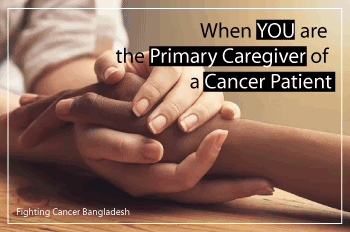
In today’s life, ‘Cancer’ is not only a life-threatening disease but also it’s a curse to all. It put down a person’s physical, mental and emotional health. The treatment of cancer is long-term and in most cases, patients are kept in their house; when needed for the time being they are shifted to the hospital.
In a cancer patient’s journey, most of the time they need someone to take care of them. In every cancer patient’s story, a person is always there to help a cancer patient in all aspects. You can call them ‘caregiver.’
Generally, the main caregiver is a spouse, parent, or adult child. They are unpaid to do so and even they don’t have any training to do this job. One’s cancer news put family members and dearest people in a shock, despite this grief many people find satisfaction to take care of the cancer patient. People consider that they have to care for their beloved one who is suffering the pain of this life-threatening disease physically and mentally. They show their love and respect by doing so.
As a caregiver, your role may extend from month to year. A cancer patient may need 24-hour care or a few hours a day and the scenario of a caring situation varies from person to person.
The role of a caregiver changes with the need of cancer patients. A caregiver may help to feed, dress, bathe, medication, financial management, and so on. He/she perform these activities besides his/her regular household chores (like cooking, cleaning, washing clothes, children’s education) and meeting other family members’ need.
If we categorize the role of a caregiver, it will be like this-
Medical Care
• Consult with a doctor for cancer patient
• Coordinate with the health care team
• Give medicine to the cancer patient as per the prescription
• Keep records about doctor appointments and tests reports
• Keep records of all previous treatments
• Monitor the possible symptoms and side-effects of the treatment
• Report about these to the health care team
Practical support
• Along with day-to-day household chores makes the home safe and comfortable for the cancer patient. A cancer patient spends more time in the house than in the hospital.
• Fulfill the responsibilities of other family members
• Take the patient to the hospital for treatment and regular check-up
• Help them with personal care. A cancer patient bears unmiserable pain, very often they are unable to maintain personal hygiene.
• Prepare meals for them
• Go outside for their shopping
• Encourage them to do some physical exercise
Emotional support
• Stay beside them
• Become a listener of whatever they are talking about and never felt them that their words are ignored
• Encourage them for their well-being
• Keep informing the rest of the family members, relatives, and friends about his health condition so they can be up to date about his health status.
• Discuss with him/her about so many things except cancer
• Do their preferable things
• Never fell him alone or being ignored
Financial matters
• Cost management for the cancer treatment
• Try to arrange financial aid
• Help to find a lawyer for some legal approaches like Will.

